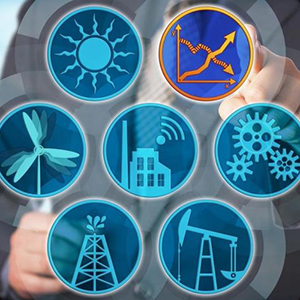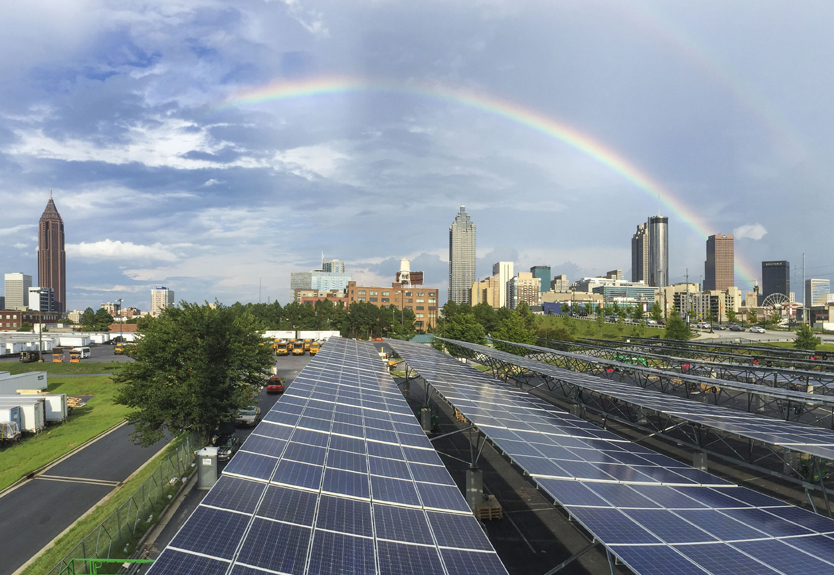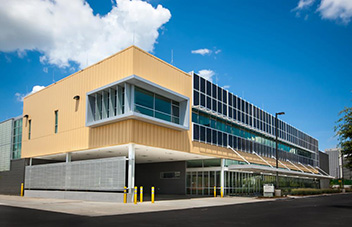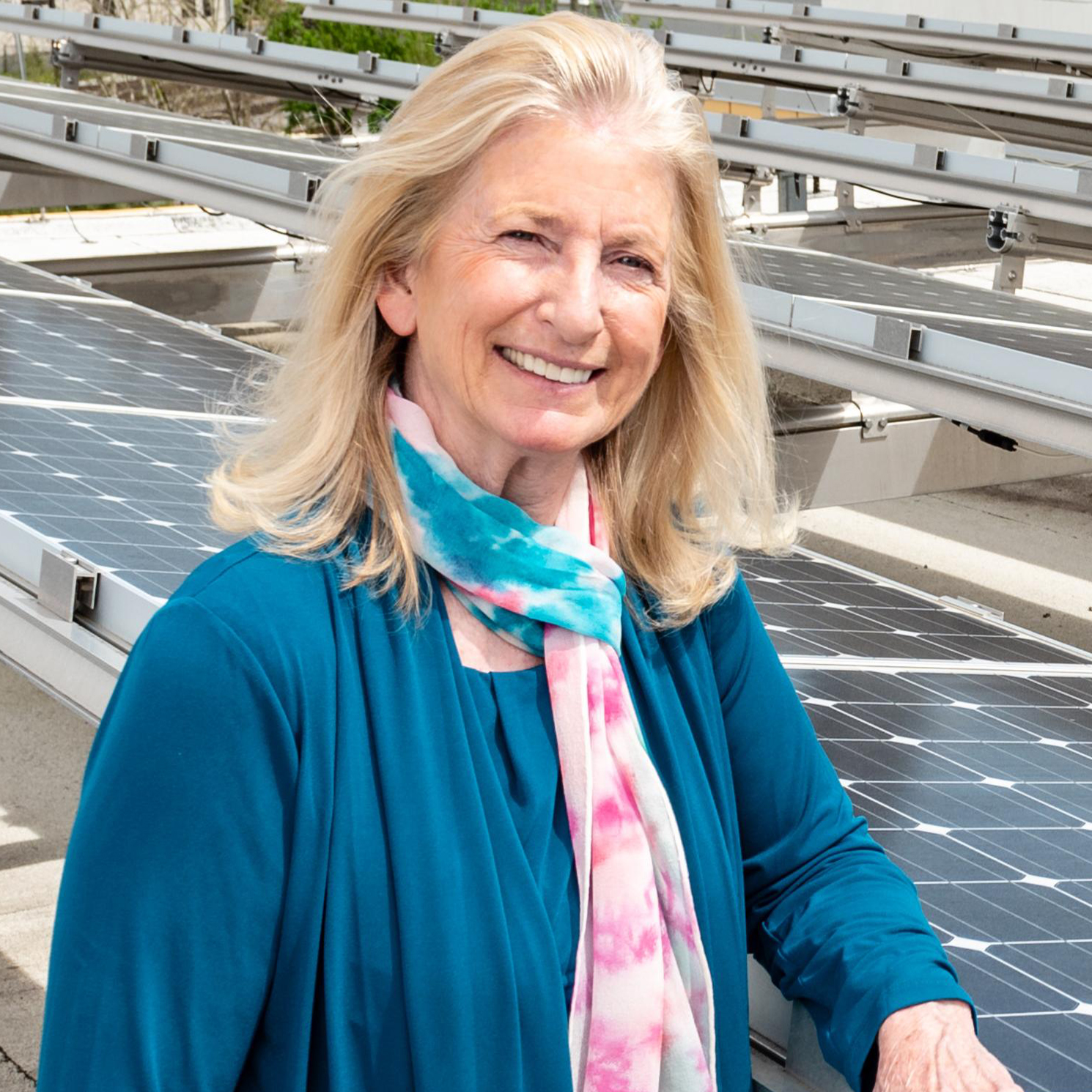Climate Science and Solutions
Climate change has emerged as one of the most challenging and disruptive contemporary issues facing us. Georgia Tech researchers are working to deepen the science of climate change and the complex ways in which climate change impacts natural, human, and built systems. They are developing innovative socio-technical solutions and contributing to partnerships for equitable climate mitigation and adaptation. BBISS, in collaboration with partner Interdisciplinary Research Institutes and Centers, amplifies the research community’s impact by serving as a dynamic hub for interdisciplinary climate research, by fostering cross-sectoral collaborations bridging academia, community-based organizations, NGOs, industry, and government, and by actively disseminating the knowledge needed to shape policy and business practice.
Research Highlights
Mitigating Climate Change Through Restoration of Coastal Ecosystems
Researchers at the Georgia Institute of Technology and Yale University are proposing a novel pathway through which coastal ecosystem restoration can permanently capture carbon dioxide from the atmosphere. Seagrass and mangroves — known as blue carbon ecosystems — naturally capture carbon through photosynthesis, which converts carbon dioxide into living tissue.
Georgia Emissions Declining, Georgia Tech-led Drawdown Georgia Research Team Shows
Overall greenhouse gas emissions in Georgia fell by 5% between 2017 and 2021, mostly due to the increased use of natural gas and solar for electricity generation, according to the research team behind the Drawdown Georgia climate initiative. Emissions from agriculture and the average individual carbon footprint also shrank. The decline in emissions comes against a 10% expansion in the state’s economy, showing the potential for reducing emissions while pursuing economic growth, according to the team.
Georgia Tech Chosen as Partner Institution for World-Leading Climate Center
Georgia Tech will be a key partner for the New York Climate Exchange (The Exchange), a first-of-its-kind international center for developing and deploying dynamic solutions to the global climate crisis. In addition to convening the world’s leaders and climate experts, The Exchange will address the social and practical challenges created by climate change — including commercially viable research and ideas that lead to immediate action on local and global levels.
Research Centers and Institutes
Climate and Energy Policy Laboratory
The Climate and Energy Policy Laboratory (CEPL) supports the educational and research missions of Georgia Tech's School of Public Policy. CEPL launced and remains affiliated with the Master of Sustainable Energy and Environmental Management (MSEEM) degree and its associated Certificate program. In addition, CEPL conducts research on:
- Local, national, and global energy transitions
- Carbon drawdown opportunities in Georgia and beyond
- Smart grids, cities and the intersection of data sciences, behavioral research, and public policy
- Clean energy financing and market-based policies
- Distributed energy resources such as energy efficiency, electric vehicles, and rooftop solar
- Energy equity
Energy & Sustainability Research Group - GTRI
The Energy & Sustainability Research Group (ESRG) at the Georgia Tech Research Institute (GTRI) conducts systems-based applied research that addresses critical local, national, and international energy, water, and health challenges. Multidisciplinary teams work together to provide water resource and environmental assessments as well as water and energy infrastructure assessments, building evaluations for energy efficiency, and energy and economic modeling. Some of our projects include next generation building materials, solid-state battery technology, green hydrogen production, and the Generation 2 Reinvented Toilet.
Strategic Energy Institute
SEI is one of Georgia Tech's ten Interdisciplinary Research Institutes. SEI integrates energy activities across the nation's largest technology university – from generation, to distribution, to use. Whether it’s commercializing a technology to address a specific challenge or designing a roadmap for focusing resources, we understand the systems, technologies, and context of the ever-evolving nature of energy production and use.
Researcher Spotlight
Marilyn Brown
Marilyn Brown is a Regents' and Brook Byers Professor of Sustainable Systems in the School of Public Policy. She joined Georgia Tech in 2006 after a distinguished career at the U.S. Department of Energy's Oak Ridge National Laboratory, where she led several national climate change mitigation studies and became a leader in the analysis and interpretation of energy futures in the United States.
Her research focuses on the design and impact of policies aimed at accelerating the development and deployment of sustainable energy technologies, with an emphasis on the electric utility industry, the integration of energy efficiency, demand response, and solar resources, and ways of improving resiliency to disruptions. Her books include Fact and Fiction in Global Energy Policy (Johns Hopkins University Press, 2016), Green Savings: How Policies and Markets Drive Energy Efficiency (Praeger, 2015), and Climate Change and Global Energy Security (MIT Press, 2011).










